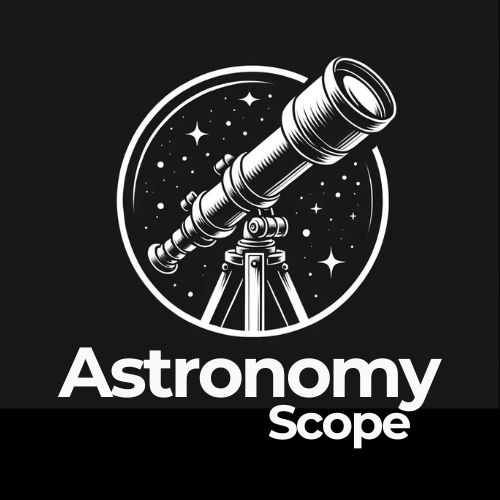It may be a subject that anyone can dive into, but the varying levels of education that come with astronomy can reach great lengths. So, whether it’s a hobby or you’re looking to turn it into a career, here is everything you are going to want to know and consider regarding studying this fascinating subject.
So, what do you learn in astronomy? From subjects such as math, physics, and chemistry, you’ll also learn about a massive list of celestial objects, and intricacies of outer space, in addition to a wide number of theories when studying astronomy. Though, how much you learn depends on where you learn and how far you’re looking to study.
Chances are, you still have many more questions; so let’s delve into those you likely have – or at least, I did!
What Is The First Thing You Learn In Astronomy?
When it comes to your first step into learning astronomy, you can expect to encounter a broad range of information that isn’t overly specific. This could include topics such as the universe, our solar system, black holes, and even the Big Bang theory.
Considering how vast the topic of astronomy can be, introductory courses usually focus on lighter topics that don’t require as much physics or math right from the start.
Of course, the further you get into the subject, you can expect astronomy to become more convoluted and, at times, quite confusing.
It’s important to understand very general concepts before diving into the specifics; otherwise, a lot of the information wouldn’t make any sense at all.
Astronomy is a subject that you can spend a lifetime studying, and you still won’t be able to learn everything it has to offer.
The introductory courses you spend time with will vary, but they’ll provide a solid grasp of our universe and the wonders that come with it.
There’s so much detail and information that comes with astronomy; introductory courses will barely scratch the surface of what you’re bound to learn down the road.
For those who decide to major in astronomy through school, they can expect to take classes such as calculus, cosmology, computer science, astrophysics, and other related subjects.
Other sub-topics that are included in many introductory courses will entail the movement of planets and our moon, the electromagnetic spectrum, information on the milk way, and a vast amount of information about Earth.
If you’re looking to learn more about astronomy, you have to expect some challenges along the way.
It can entail a lot of confusing information that may be difficult to grasp at first. With the wonder and beauty the universe is known for, it can drive inspiration that only makes you eager to learn more.
Another aspect of an introduction to learning astronomy requires observations of the night sky.
If you’re majoring in the subject through college, you can also expect lab work to be a component.
This will include basic technology and practices that are used to study our universe, and observations allow students to get used to using telescopes to source specific celestial objects.
Of course, if astronomy is just a hobby, there’s plenty of free information online that can help guide you with a thorough introduction.
If you’re looking to turn it into a career, many colleges and online classes are available for you to reach the next step in astronomy.
No matter which route you take, getting an introduction to the topic shouldn’t be too difficult.
It’ll help you discern if you want to dive any further into the subject without having to commit too much of your time and money.
What Do You Need To Learn Astronomy?
This depends on the path you take. When majoring in astronomy for college, a majority of the tools you need for labs and work in school will be provided. When you take it on as a hobby, it’s up to you to invest in a telescope at the least.
Outside of that, many applications and free online resources help guide your education.
Some universities may require students to purchase some necessities to major in astronomy, but the school generally provides a lot of the technology students encounter.
Above all, one of the most important tools at your disposal will be a quality telescope that can match up to your studies’ needs.
It also helps to have a computer and a reliable internet connection, as so much information and learning can be obtained online.
As the topic becomes more challenging, you may feel disheartened to continue, as it can turn into somewhat of a headache.
So it always helps to keep a steady level of motivation when learning astronomy.
Since it doesn’t require an entire lab to be an astronomy enthusiast, this is partly why so many people take part in the subject.
When it comes to a career in astronomy, the sentiment is pretty different.
Becoming an astronomer requires much more in-depth coursework that includes using a wide variety of technology.
Much of this pertains to lab work, and as you progress in the field of astronomy, technology will be a consistent aspect of the process.
It’s also important to know how to work as a team, as being an astronomer is rarely a solo effort.
Although many discoveries have been claimed by a single person, it generally takes a team of astronomers and like-minded experts to propel humanity forward with new findings about the universe.
Nevertheless, getting started with the subject isn’t too difficult, but a grasp of technology is vital.
Even if you’ve never handled a telescope before, with a little bit of time and practice, you can become well versed in no time.
The features and abilities of telescopes vary greatly, and the type you choose for yourself depends entirely on what you’re trying to accomplish.
Many standard telescopes are able to view objects within our solar system, but if you want to search beyond that, you’ll need a more powerful telescope.
Granted, the technology that goes into telescopes can make them relatively expensive, but I wouldn’t say it’s too hard to find an affordable telescope that has the features you need.
With the increasing amount of free and paid education you can find online, it has never been easier to start learning about astronomy.
There are a variety of topics you can find that’ll prepare you for different skill sets in the field of astronomy, and you can take everything at your own pace, so you don’t get burnt out.
Many concepts, ideas, facts, and theories can be a tad overwhelming, and considering astronomy offers a lifetime of learning, there’s no reason to feel behind on the subject.
Why Is It Important To Learn Astronomy?
We don’t generally think about our place in the universe during our day-to-day lives, but it’s much more complex than the life we’ve built for ourselves on Earth. It’s important to learn about astronomy as it can lead to many answers as to why we exist, how Earth and our solar system came to be, along with the many celestial events that have occurred over billions of years.
Even the briefest introduction to astronomy can lead to shock and awe as it can be hard to take stock of the fact that we’re pretty small and insignificant in the scheme of things.
As you delve deeper into the topic, you learn more about how the universe works, which can actually help mitigate some of the fear that comes with our existence here on Earth.
Life can lead to many questions that seem to never have an answer.
This may be true in many ways, but astronomy can provide a step-by-step process of how many celestial objects and events came to be.
Moreover, if it weren’t for how our universe came to be and the events that led to the habitable nature of Earth, we simply wouldn’t be here.
From the opposite spectrum, the subject of astronomy has a tendency to only lead to more questions over time, which is a driving force for professionals and enthusiasts alike to search for more answers.
There are also many dangers that pertain to the universe and our place in the solar system.
Although we’ve felt relatively safe with each passing year, there are many events that occur that we can’t see with the naked eye.
Some of which can be considered substantial threats, such as meteors or asteroids.
With all of the objects that are flying through space with an immense amount of speed, it doesn’t take too large of an object to inflict significant damage on Earth.
Events like this may not be a top concern in our daily lives, but that doesn’t mean they’ll never occur, so astronomers do a fine job of staying on top of these potential happenings.
Even if there are many astronomers all over the world that help guide humanity through the harsh nature of the universe, you can easily take it upon yourself to study it yourself.
Overall, learning astronomy comes with numerous benefits and can lead you down a path of unending wonder as the universe continues to amaze you at every turn.
How Do I Start Learning Astronomy?
If you’re curious about learning astronomy, there are two primary routes you can take. You can either pursue it as a career astronomer or simply dedicate your free time to learning about astronomy online or with the help of public clubs and groups.
When it comes to finding a career path in astronomy, you can expect to deal with a decent amount of coursework.
It can also become fairly difficult as you’ll be required to fully understand math, physics, chemistry, and other related subjects.
Most people who are curious about the night sky may not be too interested in a career path, as that generally takes a lot of dedication to see through.
Suppose you’d rather passively learn about astronomy in your free time.
In that case, there’s plenty of coursework you can find online or take advantage of the plethora of free information that the internet has to offer.
Thankfully, in this day and age, many astronomy experts freely share their knowledge online for the general public to consume at their leisure.
It wasn’t long ago that information on astronomy wasn’t so easily accessible, as we used to rely on lectures, schooling, or books.
With the internet, a massive amount of education on the subject is easily available, a lot of which is entirely free.
To really get anywhere with learning astronomy, you’ll want to be consistent and keep a curious mind that leads you to further your education. As stated earlier, astronomy can be overwhelming and fairly challenging at times, but once you set your eyes on what you’re looking for, it can be extremely fulfilling.
You shouldn’t look at astronomy as something that requires dedication to a college major.
If you’re looking to passively improve your knowledge on the matter, you can do a lot of it at your own pace.
Astronomy can be somewhat daunting at the start, but there are many free and paid courses online that are structured to guide beginners in the subject of astronomy.
This removes a lot of the confusion you may encounter with random information online, and it’ll set you on a path that makes it easier to progress over time.
Facing astronomy alone can generate a lot of questions that you may not be able to find a direct answer to, and this is where peer groups or astronomy clubs can be a great help.
Sharing ideas, findings, and new things you learned is an excellent way to hear other perspectives that may offer the answer you’re looking for.
It’ll also feed into your curiosity about the topic as you become more fascinated with the subject over time.
It doesn’t matter when you decide to start or the resources you have access to; learning about astronomy can be done at your own pace and on your own time.
The Bottom Line
It couldn’t be easier to start learning about astronomy, and there are a vast number of tools online you can use to further your education. Although telescopes can become quite pricey, you don’t have to break the bank to get a clear look at the night sky.
Our universe contains many amazing and life-altering realities, but you could also spend years studying our own solar system and continue to find something new.
Depending on how far you’re willing to take your education, studying astronomy can provide a lifetime of fascination and fulfillment.
Other guides you’ll likely want to read:

Hey, my name is Jeremy. I’m a passionate and seasoned astronomer who loves nothing more than observing the night sky. I also love researching, learning, and writing all things Space and the Universe. I created Astronomy Scope to share my knowledge, experience, suggestions, and recommendations of what I have learned along the way while helping anyone to get into and maximize their enjoyment of the hobby.

